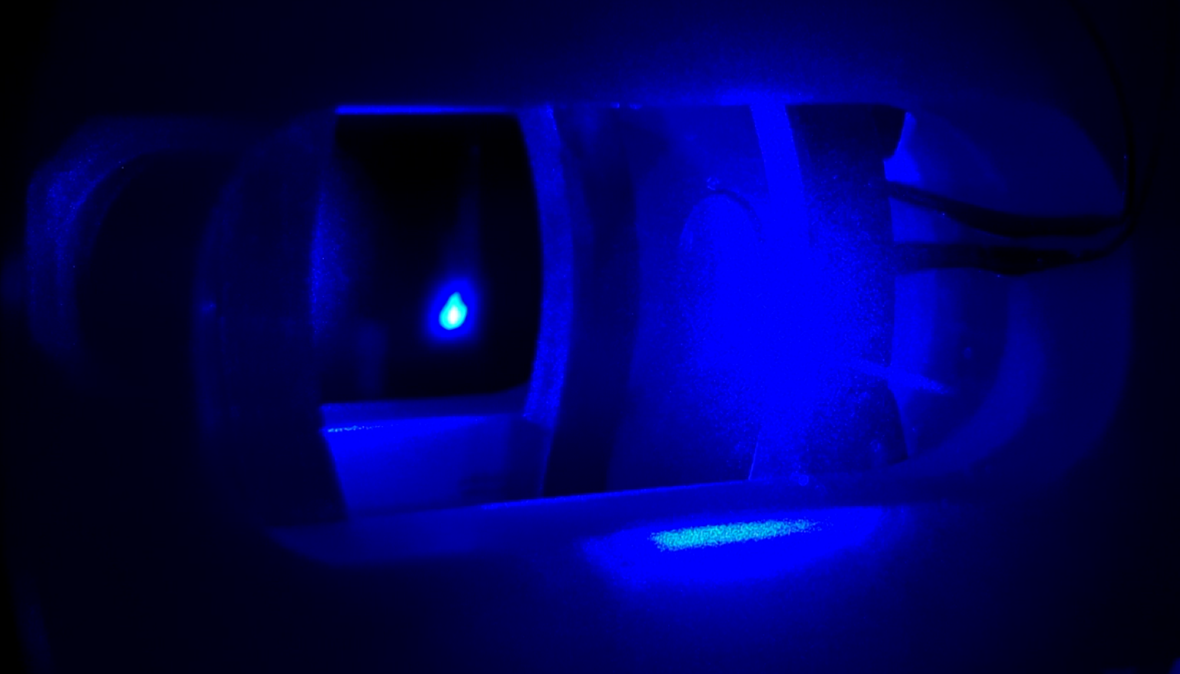The smallest of split seconds

Optical atomic clocks are extraordinary things. They use the fact that atoms, when they are isolated from everything around them, are all the same: they all have specific frequencies at which they resonate. Separated from the rest of the universe, atoms are trapped in a vacuum on beams of light, and cooled down to very near Absolute Zero to stabilise them. The frequency at which they resonate can then be measured using a laser, giving an ultra-precise indication of passing time. It’s the laws of quantum physics that govern how atoms and lasers interact, so atomic clocks are inherently quantum devices.
The challenge until now has been to make atomic clocks that are robust enough to work outside a very controlled environment. But with support from the UKRI Technology Missions Fund, a new breed of atomic clocks could soon be coming out of the lab, to be used in a range of real-world applications.
Having more robust atomic clocks would mean that our timing infrastructure in the UK was more resilient against global satellite navigation systems (GNSS) outages.
Dr Charles Baynham
Co-U=Investigator, Department of Physics
Imperial College London

The Ultra-precise, Shock-resistant Optical Clocks (USOC) project is led by Dr Richard Hobson and Dr Charles Baynham at the Department of Physics at Imperial College, London, with Dr Ian Hill from the UK’s National Physical Laboratory. Richard explains: “the atomic clocks that we have at the moment need to be encased in a sarcophagus of heavy metal shielding: there’s no way of taking them on a plane, say. What we are exploring through the USOC project are ways of creating a conveyor-belt of ultra-cold atoms. By feeding this continuous stream of atoms into an atomic clock we can continuously measure the accuracy of the laser that we use, rather than doing so sporadically. As well as being more accurate, that makes the clock more robust and potentially smaller: small enough to go on a satellite, on a truck, on a submarine.”
The project is nine months in: a prototype should be ready later this year. For co-investigator Dr Charles Baynham, the new clocks could have important applications. “First, having more robust atomic clocks would mean that our timing infrastructure in the UK was more resilient against global satellite navigation systems (GNSS) outages. Even if these clocks were disconnected from the world for a long time, they would still be extremely accurate.”
With an ultra-precise clock, which can measure fluctuations in the rate of time, we can pick up on the tiniest shifts in gravity: enough to show that an earthquake is coming or to detect the smallest movements in tectonic plates
There is a security angle to this work, which is part-funded by the Defence Science and Technology Laboratory. GPS (on which so much of the UK’s critical infrastructure depends) works by sending out very accurate time signals, but these are very easy to block. An atomic clock couldn’t be blocked or turned off.
The new clocks could have other applications, because of their ability to detect changes in gravity. “General Relativity says that time slows down near heavy things,” says Charles Baynham. “This means that with an ultra-precise clock, which can measure fluctuations in the rate of time, we can pick up on the tiniest shifts in gravity: enough to show that an earthquake is coming, for example, or to detect the smallest movements in tectonic plates.”
“The new clock could also be able to detect some forms of Dark Matter that even CERN can’t find. Our clocks involve looking very carefully at pieces of matter – strontium in this case – and so we can spot any changes to that matter, including perhaps the very subtle changes that Dark Matter may bring about.”
UKRI Technology Missions Fund
The UKRI Technology Missions Fund is designed to exploit the UK’s global leadership in transformative technologies to help solve specific problems, whilst also helping cement that leading position. Overall, UKRI is investing £320 million in Technology Missions to enable new and existing capabilities and capacity in artificial intelligence, engineering biology, future telecommunications and quantum technologies in the years 2023 to 2025 and beyond.
Find out more
Find out more about the UKRI Technology Missions Fund
Find out more about Our strategy 2022 to 2027
Find out more about how we are supporting Tomorrow’s Technologies



